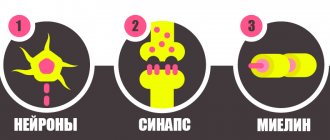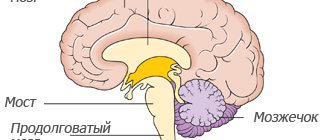Often, due to the accelerated pace of life, the human nervous system very quickly gets tired and exhausted. As a result, stress arises, which negatively affects the ability to correctly and objectively perceive the world around us. You can find a lot of advice on how to increase stress resistance on the Internet. But not all of them will really help strengthen the nervous system.
First, let's figure out why overvoltage resistance is needed in general and what its main signs are. This will help you better understand the principle of developing the necessary qualities of the body. And by understanding the principles, it is very easy to learn and absorb useful information.
Why do you need stress resistance?
The body's resistance to stress is a useful protective function that allows it to adapt to external stimuli or ignore them. In other words, it is what gives you the ability to remain calm in any situation.
The ability to always remain calm and balanced is the main sign of a well-developed defense against shocks. Thanks to it, the wear and tear of nerve nodes slows down significantly. As a result, you will achieve much more if you are not distracted by any minor trouble.
Signs of stress
Stress hits each of us sooner or later. You need to know what signs to use to determine that the level of bad influence is high enough.
- Increased irritability. You are angry and more nervous than usual.
- Confusion and inattention. Susceptibility results in the inability to collect thoughts and quickly react to changes in situation or circumstances.
- Fatigue. For no apparent reason, you want to close yourself off from the whole world and just go to bed.
- Aggression. You react sharply to every word said to you. Moreover, such a reaction occurs almost unnoticed by you, at the subconscious level.
- Impressionability. Yes, succumbing to the influence of stress, some people become too susceptible to everything that surrounds them.
What is stress and why is there so much talk about it?
We are used to calling any difficulties and unpleasant incidents stress and are terribly afraid of this condition. In fact, stress is our normal reaction to newness. When the body quickly mobilizes all its strength to quickly adapt to changed circumstances. Whether it's moving, losing a job or getting promoted.
Prolonged stress is dangerous. When you can't adapt to new things for a long time or when changes happen too often. It depletes the nervous system, destroys health and worsens the quality of life.
Situations in which we experience stress:
- We are under intense pressure;
- we are experiencing changes/nothing has changed for a long time;
- worrying and worrying about someone or something; we are in a situation that we cannot control (hello, 2020!);
- have taken on too many responsibilities/too much free time and have nothing to do to their liking;
- we feel an excess/lack of events and impressions.
You say: “Well, this is ordinary life.” Yes, this is partly true. That is why scientists are sounding the alarm and insisting on the importance of timely self-care, stress resistance training and the ability to respond flexibly to change.
“It’s not the stress itself that kills us, it’s the reaction to it.” Hans Selye, Canadian scientist and endocrinologist
Types of stress
In general, stress is divided into two types: positive and negative. Positive causes pleasant shocks. Positive emotions prevail here. Such a shock is sometimes beneficial for the body, as it activates the production of beneficial hormones.
Negative stress or distress
- This is an extremely unpleasant phenomenon that destroys the normal state of the psyche. It is divided into two subgroups, manifesting themselves differently:
- Spicy. When a sudden stimulus threatens our usual state. Reactions to any factor are different. Evasion, running away from the cause, or defense. In both cases, the body will need some time to restore its internal balance.
- Chronic. Constantly being in a stressful environment leads to the fact that the daily influence of negativity suppresses all attempts of the subconscious to protect itself from it.
Why it is important to be able to remain calm: functions of stress resistance
Stress resistance is a set of personal qualities that allow a person to endure volitional, intellectual and emotional stress without negative consequences for activities, others and one’s own health. [1]
Scientists believe that moderate stress is even beneficial. It is not as destructive as it might seem at first glance. Stress is a kind of training factor that “tempers” a person’s psyche, giving him an impetus for self-development and mobilizing internal reserves to solve problems.
But if stress accumulates and does not restore physical and emotional strength, it has a destructive effect.
Stress resistance performs 2 important functions: it protects the body from the negative effects of stress and ensures success in all areas.
Let's teach stress resistance
BUY ] WATCH VIDEO ABOUT THE SERVICE[/anchor]
Protection from the negative effects of stress on the body
When a person is very nervous, his body begins to actively produce the hormone cortisol. It is he who is responsible for the changes that occur on the physical and emotional level. Even after slight nervous overexcitation, headaches may occur, heart rate increases and blood pressure increases. All this does not pass without a trace. Constant physical and emotional stress with a low level of stress resistance negatively affects health.
In a study by psychologist B.B. Velichkovsky, a pattern was identified between the level of individual resistance to stress and a person’s state of health. It has been found that an adequate response to negative external factors leads to a decrease in the likelihood of developing acute and chronic diseases. It was also concluded that a person with a high level of stress tolerance is significantly less likely to use unhealthy methods of coping with stress, such as smoking or drinking alcohol. [2]
Ensures success in all social spheres
A person with developed stress resistance is calm, self-confident, reacts sensibly to what is happening, and methodically and rationally solves problems that arise. This reaction to stress allows him to build healthy relationships with others and climb up the career ladder.
A too strong reaction of a person faced with stress pushes people away and prevents them from achieving professional heights.
Stages of stress
The study of the nature of stress has shown that it goes through three phases in its development. Each of them poses a certain threat to the body. Therefore, you need to understand how each of the phases occurs in order to determine ways to combat them.
- Anxiety. At this stage, increased production of adrenaline and norepinephrine begins. A person understands that he must somehow react to the current circumstances.
- Resistance. In the second phase, the internal forces of the nervous system are mobilized. This practically does not affect physical health, but the person is constantly on edge, aggressive and excitable.
- Exhaustion. The most dangerous phase occurs after prolonged exposure to the irritant. The body spends all its resources fighting irritants. As a result of such actions, depression, nervous breakdowns and apathy develop.
Don’t fight, but accept: what is stress resistance?
American psychologist Richard Lazarus defines stress as follows:
“a state when a person realizes that the demand exceeds the personal and social resources that he can mobilize.”
Stress is not bad in itself: without it, humanity is not able to survive. It teaches us to make quick decisions in the most difficult situations. In addition, American scientists have determined that during periods of short-term shocks, the following cells work more intensively in the body:
- monocytes (promote rapid healing of tissue cells)
- neutrophils (fight infections)
- lymphocytes (form immunity).
Fun fact: Scientists believe that stress is more common in Western countries. The values and basic attitudes of their residents are dominated by competitiveness and the desire to earn more. In the East, stress appeared after the penetration of Western thinking at the end of the 20th century.
In 2009, the American television channel CNN conducted a survey among US residents about the main stress factor. The results showed that for countries that share Western values, the main cause of stress is money (financial instability and the risk of losing a source of stable income). In addition to the United States, the populations of Singapore, China and Malaysia are subject to “monetary” stress.
Impact of stress on health
Frequent or constant exposure to an unpleasant and stressful environment leads to consequences at the physiological level. What will your body have to face due to constant stress?
- Increasing glucose production to increase energy output leads to the development of diabetes.
- Reduction of the thymus gland, which is responsible for the production of leukocytes, significantly weakens overall immunity.
- Constant tension and contraction of muscles gradually leads to their destruction. The same applies to the tissues of internal organs.
- Excessive expansion of capillaries often causes their ruptures. As a result, hematomas form and blood circulation is disrupted.
- Metabolic disorders cause poisoning by toxins that are normally simply eliminated from the body.
Psychosomatic health also suffers, receiving a dose of negative influence:
- Mood swings, outbursts of aggression,
- Loss of interest in the outside world, apathy,
- Sleep disturbance, anxiety,
- Development of neuroses, frequent headaches,
- Loss of energy, increased drowsiness,
- Formation of depression.
Stress factors
Factors that may be a cause for stress or their main cause.
- a person who causes antipathy;
- an event that recalls an old trauma;
- mistakes, due to lack of self-confidence, a person perceives them as a real disaster;
- thoughts due to mental disorders or phobias;
- words and thoughts.
Eliminating the causes will reduce the likelihood that obsessive thoughts will appear. Stress factors are individual in nature. They do not lend themselves to conventional classification: a person determines their significance by analyzing experience from the past. It is difficult to cope with factors that resemble serious psychological trauma: they return a person to the moment when he was defenseless.
Accompanying phobias force a person to change behavior: if previously he perceived problems normally, then internal fears make him afraid of the world around him. Serious mental disorders are especially dangerous at a young age: during the formation of the psyche, low resistance to stress develops pathologies and diseases.
Prevention
Psychocorrection of human behavior at any age is a multi-stage process. Prevention and prevention of a stressful state begins with awareness of the factor that triggers a strong psycho-emotional reaction. After identifying a stress factor, it is necessary to eliminate it from your life. You should not be afraid of changes, they will help the individual regain his former spiritual harmony. If a stress factor is only a pretext, and not the main cause of stress, then eliminating it will only reduce the strength of the psycho-emotional reaction. In such cases, it is necessary to work with thinking, beliefs and habits.
Type of stress resistance
The ability to withstand external factors is individual for everyone. Scientists studying the nature of overvoltage conditionally divide people into four main types:
- Stress-resistant.
Such people react sharply to any changes that do not correspond to the basic plan of action or the usual course of life. Critical situations cause them outbursts of emotions that are practically uncontrollable. - Stress trained.
Gradual changes are perceived by such people quite calmly. But sudden changes can cause depression and self-doubt. But over time, they develop a calmer reaction to negativity. - Stress-inhibitory.
Sudden and drastic changes in a negative direction cause increased activity in such people. They easily cope with unexpected problems. The gradual increase and course of stressful conditions can form chronic depression. - Stress-resistant.
This is the calmest and most stable person. Almost any life circumstances are perceived calmly. The ability to adequately think and assess a situation is very highly developed.
How to learn to manage stress
Identify stressors. Try to figure out what causes you the most anxiety: difficult relationships, criticism from superiors, business trips abroad, presentations. Ask yourself:
- What caused the stress in this situation?
- Do I feel exhausted after a day at the office? If so, what causes this condition?
- Why do I feel like a “squeezed lemon” after communicating with this person?
Write down the answers in a “stress diary” and enter into it all subsequent situations that will cause a stressful state. Most often, situations are repeated, and fixed patterns (reactions) will help you perceive similar cases less harshly.
Address stressors if possible. Each problem consists of 50% factors that we can control. For example, every grocery trip you make takes place on the weekend and is stressful. Are you worried about waiting in line? Try ordering groceries online next time.
Set your priorities. Trying to get more done, we end up leaving a sea of unfinished tasks, and our enthusiasm quickly disappears. Reduce your to-do list and focus on more important tasks using the Eisenhower Matrix.
Stick to work-life balance. Researchers from University College London found that people who work more than 55 hours a week have a 13% increased risk of heart attack and a 33% increased risk of stroke, compared with those who work 35–40 hours a week.
Calculate how much time you spend working and how much time you spend relaxing (for example, using the RescueTime app). Analyze whether you have enough time to recover. Think about how else you can recharge if you can't get enough rest.
Practice healthy sleep. Research shows that people who get enough sleep (but also don't oversleep) live longer and have a lower risk of developing mental illness.
An important rule of sleep is to follow a sleep schedule and wake up taking into account the circadian ri associated with the change of day and night). To do this, set your alarm clock for three days, for example, at 7:00, 7:15 and 7:30. Go to bed at the same time every day and track when it's easiest for you to wake up.
It is also recommended to go to bed before 22:00, since between 10 and 2 a.m. the hormone melatonin is produced, which is involved in regulating the rhythms of sleep and wakefulness. Later it is replaced by the cheerfulness hormone serotonin, which wakes us up in the morning and does not bring full recovery. This is why we feel tired if we fall asleep after midnight, even if we slept for 8 hours.
All business content in a convenient format. Interviews, cases, life hacks of the corporation. world - in our telegram channel. Join us!
Get rid of negative attitudes. It’s difficult to form a habit by avoiding some action: “I won’t work outside the office,” “I won’t spend the entire day scrolling through Facebook.” Focus on what you will do instead of working outside the office or scrolling social media. Or use the principle of replacing negative attitudes with positive ones, proposed by the American Duke University:
- Negative attitude: “My manager is so inconsiderate—a total mess.”
- Alternative Positive Attitude: “My manager seems worried. Perhaps I can help him with something."
Organize general cleaning. Clutter creates a feeling of chaos, instability and can cause stress. Do you find it difficult to find the thing you need, and out of a dozen pens, less than half write? It seems it’s time to get rid of them and organize your life.
Make good use of your time on the road. Simple rituals, such as reading a book on the way home, allow you to smoothly transition from one role to another - domestic. By repeating this ritual, you will leave work stress at work and reduce anxiety before coming home.
“Filter” information. One of the most common causes of anxiety is negative news. They impose a stressful lifestyle and negatively affect the psycho-emotional state.
A study by clinical mental health consultant Wendy M. Johnston found that watching negative news for 14 minutes can even trigger symptoms of PTSD (post-traumatic stress disorder).
What to do? Create spaces for yourself free from information noise.
Chew gum. Research shows that chewing gum helps cope with stress. Andrew Shawley, director of the Center for Psychopharmacology at Swinburne University, Australia, asked participants to chew gum under conditions of multitasking and regular stress. People experienced decreased anxiety, decreased levels of cortisol (the stress hormone), and increased productivity compared to a control group.
And the last piece of advice - don’t accumulate tension . Cumulative stress theory refers to energetic people who do 100 tasks in a day and remain alert. But at an unexpected moment they realize that the “battery is dead” and their health is moving towards 0. When fatigue appears and concentration decreases, learn to pause things and arrange a digital detox.
How to test stress resistance
Testing a person's stress resistance is becoming increasingly fashionable in various interviews. To determine your level of preparation for changes, you should take a short test by answering questions. This will show your ability to cope with life's circumstances.
Another way to test your inner strength is to conduct a DNA test. Studying your genetic code will show how susceptible your body is to negative influences. Our center’s specialists will help you decipher the information received and give advice on how to increase your resistance to stress.
What to do about it
Yes, we don’t choose genes (at least not yet), neither do we choose our parents, and sometimes we can’t even change our place of residence or influence the adoption of a new bill. What remains? Personal attitudes and properties that are fully developing, even if you were not able to move anywhere and you continue to enjoy the aesthetics of working-class suburbs.
According to scientists, the following qualities determine our mental stability:
This is almost a step-by-step instruction, telling you what to cultivate in yourself so as not to give up when you miss a goal. It is interesting that, for example, the desire for material well-being is unusual for stable people - and, probably, this is useful during economic crises: incomes fall, and you look at what is happening with Spartan calm.
Researchers strongly recommend learning how to transform stressful life events into new opportunities. This is not a failure, but a personal challenge. I'm not falling into the abyss, but gaining new and very useful experience. Such an unclouded look is a reliable fuse for the psyche.
Here are some more specific tips:
1) establish friendly relations. This is a good starting point for developing your resilience. APA psychologists believe that accepting help from others is a surefire way to replenish your strength. Social associations, religious parties, handicraft clubs - all this only seems like nonsense, but in reality it provides social support;
2) interpret events in your favor. Yes, it is not in our power to “undo” the sad incident and turn back time, but we can call it “the collapse of all hopes” - or “an unfortunate accident.” In general, any methods that make you feel better are suitable here. Scientists have repeatedly spoken about the healing power of positive emotions. Call everyone stupid, watch your favorite comedy, do weird dances, get a cat with a funny face. All this (especially the cat!) is suitable as a pain reliever during periods of life loss;
3) remember your goal. What? What purpose? Yes, yes, you have a goal. You just need to remember which one. And it is desirable that it be at least a little realistic. This will help you start moving towards it. Even if in small steps, maybe even microscopic ones, but move;
4) engage in trendy therapeutic practices. Science proves that every second of them has a positive effect and increases resistance to troubles. Do you want to dance an Irish jig with a jump or, wearing fishnet tights, dance in the style of voguing? Wonderful! Scientists approve. Prefer to keep a diary? Use healing narrative practices. Cheers! Would you like to take up meditation? It is high time. In a word, upon closer examination it turns out that everything a person does is to his benefit. That is, it increases mental stability.
Even if we have a good margin of safety, we should always work ahead. This is necessary so that in the event of an undesirable development of events, you do not go crazy, burn out, or become depressed. Fortunately, receiving positive emotions is not a particularly exhausting way to help yourself.
How to develop stress resistance
Comprehensive development of stress resistance skills helps not only protect your body, but also significantly increase your own efficiency. There are several effective methods that help to successfully strengthen protective functions.
- Correct assessment of the situation. It is based on three simple questions: “How important is this to me?”, “Does this change my life?” and “Can I change something?” It is important to understand that some circumstances do not depend on ourselves, so they should not be taken too seriously.
- Release of emotions. You can’t keep all the accumulated irritation inside yourself. Choose a method that will help you get rid of negativity and let off steam.
- Attention to health. Any disease undermines the protective functions of the nervous system. It is important to carry out treatment on time, eat right and walk in the fresh air every day.
Ways to develop resistance to stressful situations
The development of stress resistance, like any other improvement in a person’s psychological state, is a gradual process. You need to start by determining your level of resistance to the influence of stressful situations. It is recommended to do this with the help of a specialist. However, there are also special tests for independently determining the level of stress resistance. One of these is the Holmes and Rahe questionnaire.
There are several ways to increase your resistance to stress. These include:
- Assessment of what is happening.
- Release of accumulated negative emotions.
The first method helps develop resistance to stress by analyzing each situation that causes a stress reaction and an emotional outburst.
When faced with such an event, mentally ask yourself a few questions about the importance of this situation and the possibility of changing it and answer them. After this, it will be clear that there are only two types of situations: those that we can change, and those that are beyond people's control. In order not to waste his nerve cells and be exposed to the negative influence of stress, a person begins to act according to two models depending on the type of situation: either he changes circumstances and corrects the situation, or he accepts the situation as it is and looks for alternative ways to solve the problem.
How to relieve stress
Giving vent to negative emotions is equally important in order to develop stress resistance.
The more negativity a person accumulates in himself, the more susceptible he is to the acute experience of any, even the most minor, stress.
To get rid of accumulated negativity, use the following methods:
- Boxing pears (the Japanese especially liked this method).
- A loud scream of everything that had accumulated in a deserted place.
- Recording all statements that were not possible to say to the offender in a special notebook.
To increase your resistance to stress, you need not only to be able to release accumulated anger and aggression, but also to correctly assess the situation. Having previously experienced a certain amount of stress, it is important to develop the ability to get rid of the stress itself as easily as emotional garbage.
Physical exercise increases stress resistance
You can do this using the following methods:
- Games “Brain Ring” or “What? Where? When?". In addition to relieving stress, they can improve the ability to make quick decisions.
- Playing chess, checkers, hockey, football or tennis.
- Maintaining a healthy lifestyle.
It is worth remembering that a person with good health is able to cope with stressful situations more easily. To maintain your health at the proper level, physical activity, proper nutrition, and character with the developed ability to quickly make a clear decision in an unusual and atypical situation are important.
Yoga and meditation against stress
Psychological exercises
Effective methods for developing protection from negativity help you stay collected and calm in any situation. To protect against excess voltage surges, use a few tricks:
- Leave the aggressor when you feel that his excitement has rubbed off on you.
- Alone with yourself, take a few deep breaths.
- Try to make yourself laugh.
- Meditation will help stabilize your inner balance
A psychologist is not scary!
Contrary to popular belief, psychologists are not trying to force you to reveal your most terrible and shameful secrets. They help you find ways to solve problems that are deeply ingrained in your subconscious and give you the right advice. Remember: no one can force you to tell what you yourself do not want to reveal. A psychologist will help you determine why your level of stress resistance does not meet the desired level. Then together you will find a solution to this problem without further traumatizing your psyche.
Useful tips
To prevent a nervous breakdown from awaiting you at the most inopportune moment, you should regularly develop stress tolerance, especially in the workplace. Doing this is not as difficult as it might seem at first glance. To do this, you must follow some rules, which we will consider below.
- Gaining stress resistance in business communication is possible when an employee does not take on too much. To become the owner of a more stable nervous system, you just need to gradually fulfill your responsibilities and not take on additional tasks for which you are not paid. They go unnoticed. You need to do everything to the best of your ability and not try to jump over your head.
- And you shouldn’t give up and say that the situation in the workplace cannot be worse. Thus, on a subconscious level, you set yourself up for the fact that the situation is almost impossible to resolve. As a result, it turns out that it is really impossible to get rid of the problem. For example, the psychological characteristics of stress resistance among law enforcement officers are specific. Everyone understands that it is impossible to prevent any accident, murder, theft, etc. Still, you cannot focus on one crime and blame yourself for all the troubles. You need to step over any resolved matter and move on, realizing that you cannot do without it now. In modern practice, you can find courses that develop stress resistance in law enforcement. This helps professionals perform their duties properly.
- For employees who work and interact with people, it is necessary to show leniency at least sometimes. This is a pedagogical technique that helps not only increase stress resistance, but also eliminate conflict. The teacher puts himself in the student’s place and, if this option is possible, then he gets rid of the problem without unnecessary hassles. Naturally, this can only be done in some and not the most critical situations, but sometimes even this small indulgence works as a lifeline for a particular person.
- Gaining stress resistance in business communication is possible when an employee values his time. He must manage it in such a way that nothing can distract him from his main activity. Constantly switching from one task to another leads to loss of attention and lack of concentration. As a result, the employee simply does not have time to fulfill the plan and is very tired.
- The stability of personnel in extreme conditions is also determined by the ability to fight back and refuse. In any company, there are times when you need to act quickly (for example, before a large-scale audit). Each employee tries to resolve problems in his area in every possible way and begins to ask for outside help. Weak people drop everything they are doing and run to help others, after which they are reprimanded by management for not having time to eliminate problems in their area. To eliminate possible stress, it is better to think about your own affairs and refuse others in a timely manner.
Simple exercises
To strengthen the defense mechanisms of your subconscious, perform simple exercises daily:
- Standing in front of the mirror, smile at yourself. There is no need to study your own reflection. After smiling, say a few compliments for yourself.
- During the working day, give yourself 10 minutes several times to relax. Just sit and look out the window or wall. At the same time, try not to think about anything at all.
- Use proper breathing techniques that are practiced in yoga. Breathe every night before going to bed.
If you feel that a stressful situation is inevitable, imagine yourself in armor or a tank. You need to mentally see yourself in shining armor or hidden in a reliable, impenetrable machine.
Diagnostics
Currently, an integrated approach is predominantly used to diagnose stress resistance, especially when appointing to responsible positions and professions that require extreme working conditions.
Until recently, stress resistance was determined by a person’s emotional state and behavior.
But now this method is considered ineffective, since a more in-depth study of personality characteristics is necessary. A person may not show any outward emotions, but at the same time be under deep stress.
To diagnose stress resistance, testing, questioning and self-analysis are used. Various techniques have been developed to determine the level of adaptability of the psyche.
Diagnostic tests:
- Boston test.
- Cohen and Willianson Self-Esteem Test.
- Schreiner's Stress Diagnosis.
- Questionnaire “Well-being in extreme conditions”, authors Volkova and Vodopyanova.
- Baranov’s method of relapse proneness.
- Leonova’s method of integral diagnostics.
Depending on the objectives, the most appropriate research methodology is selected.











